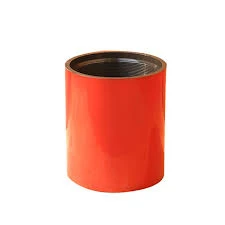- Afrikaans
- Albanian
- Amharic
- Arabic
- Armenian
- Azerbaijani
- Basque
- Belarusian
- Bengali
- Bosnian
- Bulgarian
- Catalan
- Cebuano
- Corsican
- Croatian
- Czech
- Danish
- Dutch
- English
- Esperanto
- Estonian
- Finnish
- French
- Frisian
- Galician
- Georgian
- German
- Greek
- Gujarati
- Haitian Creole
- hausa
- hawaiian
- Hebrew
- Hindi
- Miao
- Hungarian
- Icelandic
- igbo
- Indonesian
- irish
- Italian
- Japanese
- Javanese
- Kannada
- kazakh
- Khmer
- Rwandese
- Korean
- Kurdish
- Kyrgyz
- Lao
- Latin
- Latvian
- Lithuanian
- Luxembourgish
- Macedonian
- Malgashi
- Malay
- Malayalam
- Maltese
- Maori
- Marathi
- Mongolian
- Myanmar
- Nepali
- Norwegian
- Norwegian
- Occitan
- Pashto
- Persian
- Polish
- Portuguese
- Punjabi
- Romanian
- Russian
- Samoan
- Scottish Gaelic
- Serbian
- Sesotho
- Shona
- Sindhi
- Sinhala
- Slovak
- Slovenian
- Somali
- Spanish
- Sundanese
- Swahili
- Swedish
- Tagalog
- Tajik
- Tamil
- Tatar
- Telugu
- Thai
- Turkish
- Turkmen
- Ukrainian
- Urdu
- Uighur
- Uzbek
- Vietnamese
- Welsh
- Bantu
- Yiddish
- Yoruba
- Zulu
stainless steel coupling
Understanding Stainless Steel Couplings A Comprehensive Overview
Stainless steel couplings are essential components in various industrial applications, providing a reliable means of connecting a pair of shafts or pipes. Their durability, resistance to corrosion, and high strength make them a preferred choice in sectors like manufacturing, oil and gas, and construction. This article delves into the significance of stainless steel couplings, their types, benefits, and applications.
What Are Stainless Steel Couplings?
Couplings are mechanical devices that link two shafts or pipes together, allowing for the transfer of torque, fluid, or gases between them. Stainless steel couplings are specifically crafted from stainless steel, a material known for its resistance to rust and corrosion. This quality makes them ideal for environments that face exposure to moisture, chemicals, or elevated temperatures.
Types of Stainless Steel Couplings
There are primarily two categories of stainless steel couplings rigid and flexible.
1. Rigid Couplings These provide a solid connection between shafts and are generally used in applications where alignment is critical. They are suitable for high-torque environments but do not tolerate misalignment well.
2. Flexible Couplings These allow for some degree of misalignment and absorb shock loads, making them suitable for applications where precision may vary. They can accommodate axial, angular, and radial misalignment, which is advantageous in dynamic systems.
Within these categories, there are numerous design variations, including clamp, split, and bellows couplings, each tailored to specific operational needs.
Benefits of Using Stainless Steel Couplings
Stainless steel couplings offer a multitude of advantages that enhance their functionality in various applications
stainless steel coupling

- Corrosion Resistance One of their most significant benefits is their resistance to corrosion, making them ideal for chemical processing, marine applications, and anywhere exposure to harsh environments is common.
- Durability Stainless steel couplings exhibit high tensile strength and toughness, ensuring they can withstand substantial loads and resist wear over time
.- Low Maintenance Due to their robust nature, these couplings require minimal maintenance, which reduces downtime and maintenance costs for industries.
- Versatility Their ability to operate under varying temperatures and pressures allows for use in a wide range of applications, from automotive systems to manufacturing machinery.
Applications of Stainless Steel Couplings
The usage of stainless steel couplings spans several industries
- Oil and Gas In this sector, reliability and resistance to corrosive substances are paramount. Stainless steel couplings are widely utilized in pipelines and drilling equipment.
- Manufacturing They play a crucial role in connecting machinery components, ensuring that operations run smoothly without interruptions.
- Food and Beverage The sanitary properties of stainless steel make it suitable for the food industry, where hygiene is critical.
- Aerospace The aerospace industry employs these couplings for their ability to withstand extreme conditions while maintaining structural integrity.
In conclusion, stainless steel couplings are vital components that enhance the efficiency and reliability of numerous mechanical systems. Their corrosion resistance, durability, and versatility make them a preferred choice across various industries, underlining their importance in modern engineering applications.
-
Well Casing Extension Couplings – Applications and InstallationNewsJun.06,2025
-
Types of Crossover Subs in Drilling & CompletionNewsJun.06,2025
-
Key Features of High-Quality Tubing Pup JointsNewsJun.06,2025
-
Installation and Maintenance Tips for Steel Couplings for PipeNewsJun.06,2025
-
How to Select the Right Pup Joint for Oil & Gas OperationsNewsJun.06,2025
-
Applications of Stainless Steel Pipe CouplingsNewsJun.06,2025







